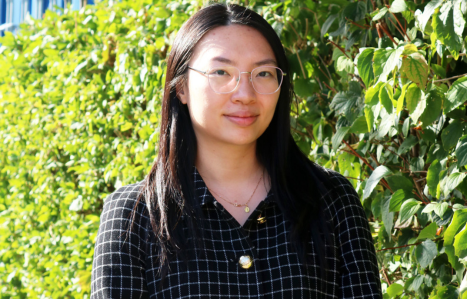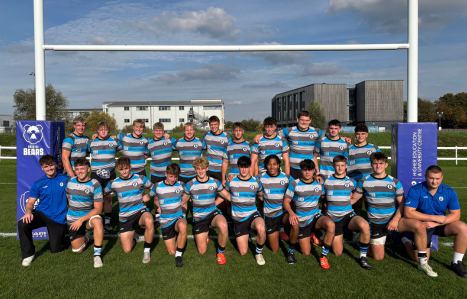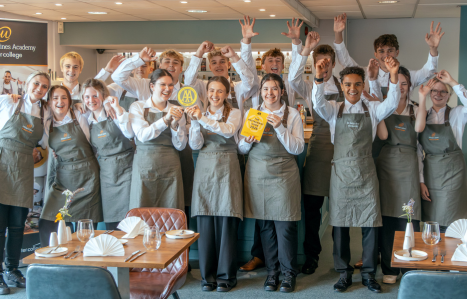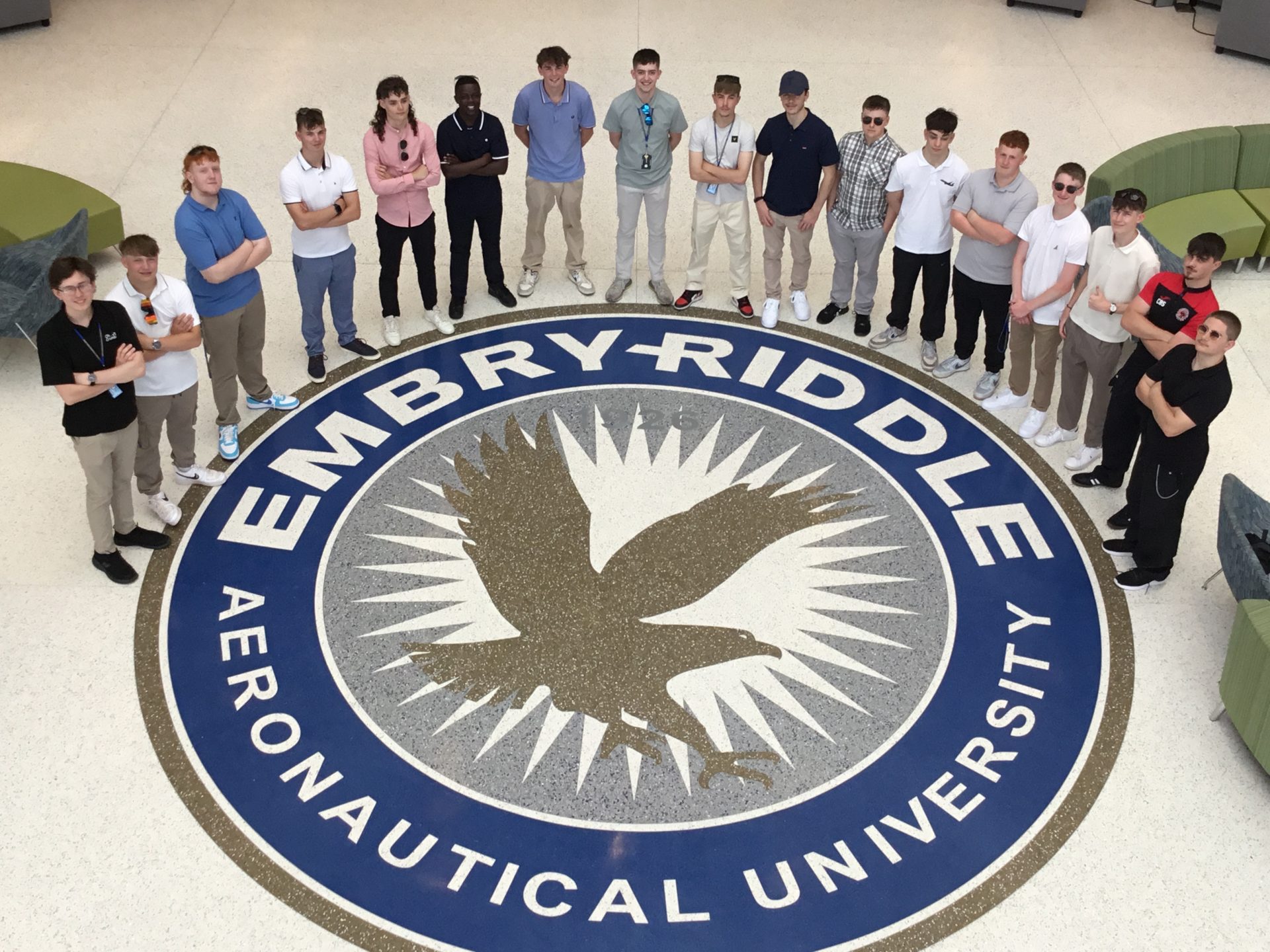
Students go Transatlantic to attend Top Aerospace and Aviation University Worldwide
Exeter College students were once again given the unique opportunity to experience two weeks at Embry-Riddle Aeronautical University in Florida, studying across a range of technological areas and experiencing student life stateside.
This year marks the third year of the exciting partnership with Embry-Riddle, and each visit has offered the same warm welcome and high-level training to those taking part. Seventeen students from the National Diploma in Aeronautical Engineering course benefitted from a busy programme of seminars and practical workshops held at the world-leading university (which boasts several campuses across the globe), covering chemistry, microbiology, meteorology, and more. Students also enjoyed a full itinerary of activities outside of the classroom, including an audience with Artemis III engineer, Nick Sanchoo, at the Kennedy Space Center, and a trip to the Daytona International Speedway where students were able to sign the finish line and get up close to the winning car from this year’s Daytona 500 race.
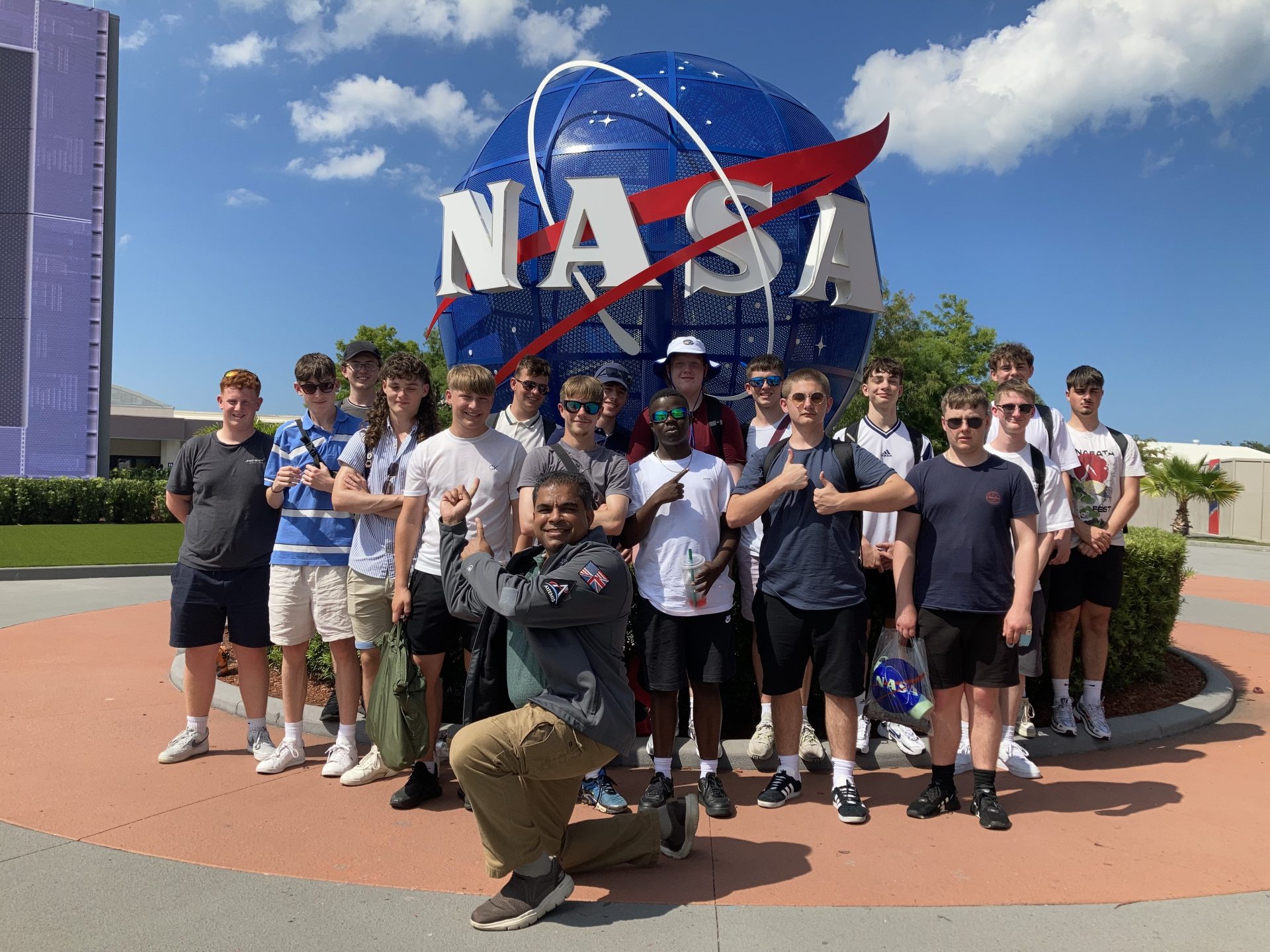
College lecturer, Oliver Russell, who accompanied students on the trip, observed:
“For students to have had exposure to key players like Nick Sanchoo and Colonel Charlie Fisher at the Kennedy Space Center has really inspired them to dream big and to work hard to achieve this. They have had the chance to network with some exceptional individuals working at the top of their field.”
The now-annual residential is made possible by The Turing Scheme, a UK government scheme that funds opportunities for education and training abroad. The programme has facilitated this once-in-a-lifetime experience for students for the third consecutive year, Oliver commenting that, “Embry Riddle has again lived up to and exceeded all expectations from both staff and students.”
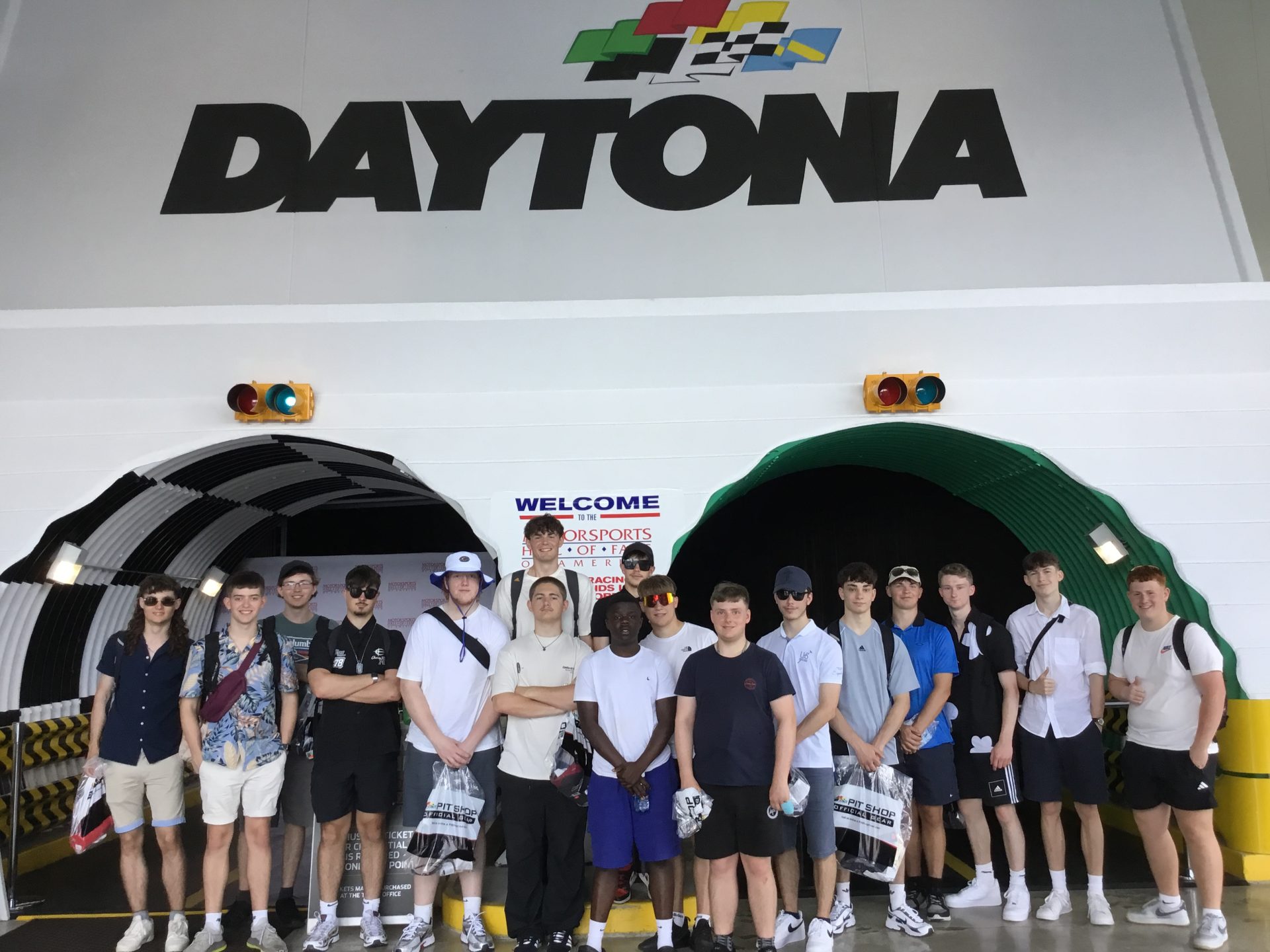
There is no doubt that the experience will impress itself upon students for years to come. Further highlights from the packed schedule included viewing the Boeing Starliner launch to the International Space Station, drone operation training with one of Florida’s SWAT officers, time at the Embry-Riddle Observatory with the largest public access telescope in Florida, as well as a Wright flyer experience, and more besides.
One student parent explained how these unique experiences have impacted his son’s learning and future aspirations:
“We’d catch up with Ethyn every day, getting a full rundown of his itinerary, and each time we were amazed at the array of activities and experiences. If the aim was to inspire Ethyn and the group to find their way in the world, develop exciting careers, be thoughtful towards others and have a thirst for learning, then the College and Embry-Riddle have 100% knocked it out of the ballpark. Ethyn has returned even more determined to build his career in aeronautical engineering.”
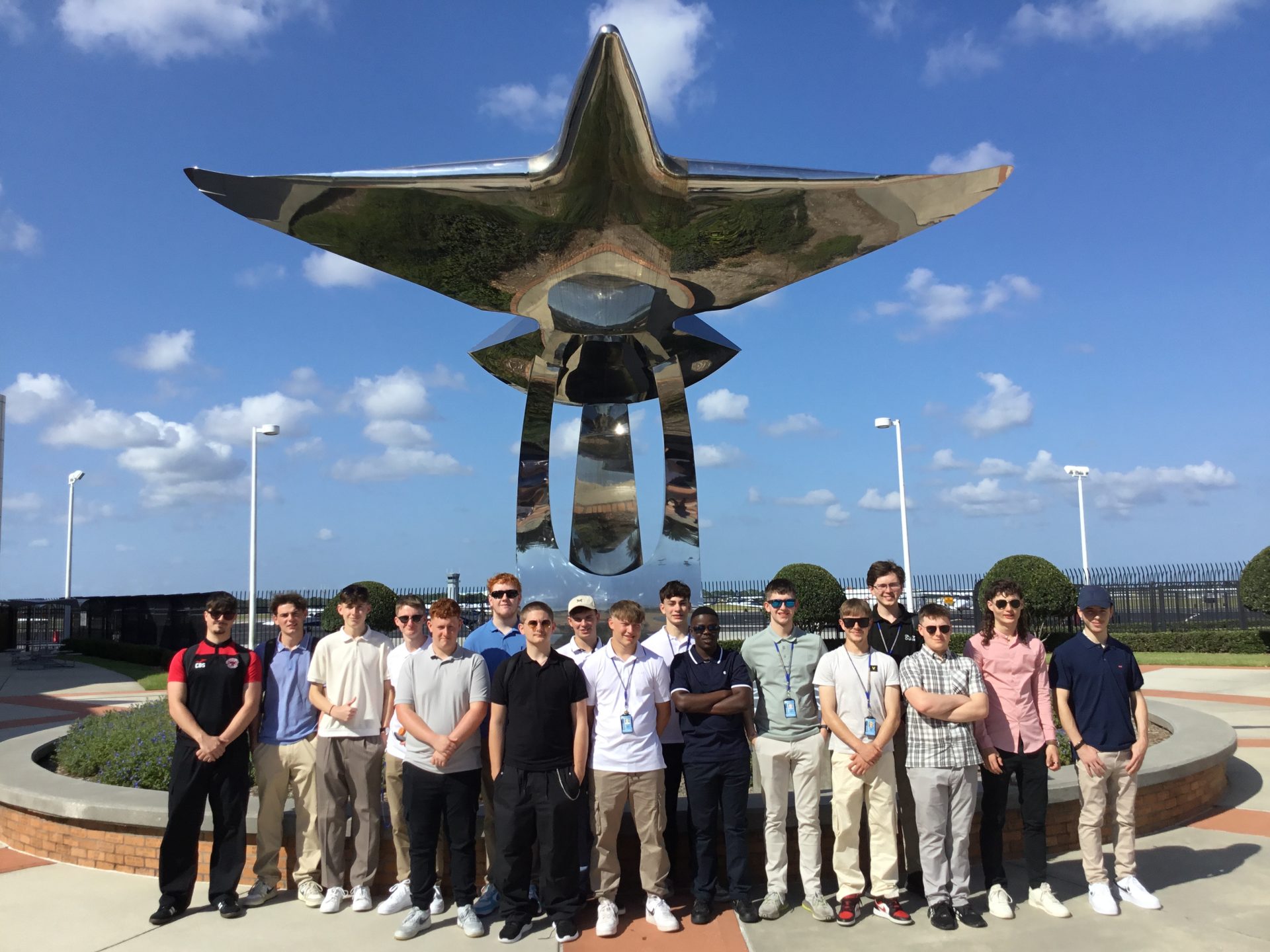
Mike Blakeley, Executive Director of Apprenticeships and Future Skills, said:
“It’s vital Exeter College plays its part in training the next generation of engineers and the Embry-Riddle partnership is one way we can achieve that goal. Students are exposed to so many different aspects of the engineering and aerospace sectors during this period in the US – it opens their eyes to so many possible horizons.”
Diploma students are interviewed and selected for a place on the scheme and conclude the 2-week programme with a presentation delivered to both College staff (some watching remotely) and Embry-Riddle academics, as well as their peers.
As ever, the care and commitment of the talented team at Embry-Riddle towards their guest students really shone through during the trip, with a special visit from the Chancellor of the University, Dr John Watret, in addition to lectures, tours and workshops delivered by the lecturers and support staff there.
College lecturer, Dave Tredgett, described the culmination of the trip as a “phenomenal graduation ceremony” in which students were presented with awards including a drone usage certification. The event was livestreamed for parents and guardians at home in the UK. Dave reflects that, “Nothing was an inconvenience; we were so well accommodated in every way. They really make this trip special.”
Students in their turn exemplified model behaviours throughout the two weeks, reinforcing the foundation for future aeronautical engineering cohorts to benefit from this standout opportunity.

